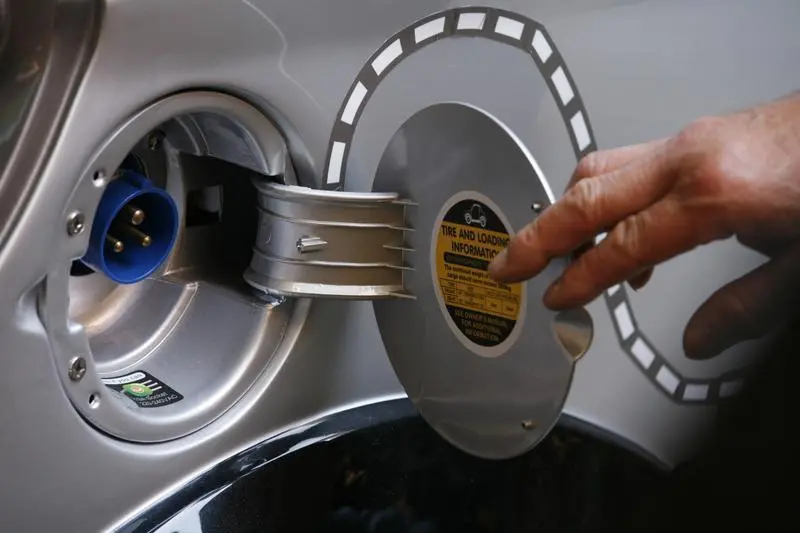PHOTO
Wednesday, Jan 18, 2017
Dubai: Electric cars won’t be a novelty for long. By 2035, they are expected to make up 90 per cent of all vehicles as the use of clean energy becomes mainstream.
And it’s not just that. About 20 years later, in 2053, instead of fumbling for a power outlet and a cable to charge electronic devices, people will be able to send and receive power, according to the State of the Future Report, which was released on Wednesday by the UAE at the World Economic Forum in Davos.
“We will have the ability to send power as easily as we can send data, so every device can be powered from a cellular array. It could power someone else’s cell phone across the road, so all of our energy production will be completely decentralised,” the report said.
But even 15 years prior to that, clean energy will be more abundant, with electricity generated from renewable sources expected to be greater than the current combined demand of China, India, and Brazil — three of the world’s most populous countries. Twenty per cent of households will run on solar energy by 2020.
Solar energy is also expected to become “as cheap as coal or as cheap as your regular utility bill” in the next five years. With subsidies, at least a third to half of states in the US will rely on it, the report said. In fact, such a drop in the cost of solar energy will result in “dramatic solar growth,” and solar panels may even be rolled out on just about every surface.
Stricter governmental policy
Energy consumption will also drop, as global demand for energy is expected to peak by 2030.
“New technology and stricter governmental policy will cause energy consumption to begin to fall across the fields of transport, heating, and electricity,” the report said.
Another sector expected to witness significant growth is technology, with the augmented reality/virtual reality industry expected to be a $150 billion market by 2020.
The report, launched by the Dubai Future Academy, was prepared in collaboration with 21 experts from organisations that include Nasa, New York University Langone Medical Centre, Massachusetts Institute of Technology (MIT), ConsenSys, and the SENS Research Foundation.
It aims to educate all stakeholders on the efforts needed to build a bright future for the UAE and the world, as well as propose solutions to challenges facing the world.
Factbox: iRobot
The State of the Future Report said that the increasing use of artificial intelligence in daily life will lead to machines committing a majority of crimes by the year 2040.
By 2042, artificial intelligence will play a major role on companies’ boards of directors and will be making many of their financial decisions. Half of the global workforce will be automated.
“There is going to be a blurring of the lines between humans, robots and AI and there will be a larger form of life,” according to Alex Lightman, and futurist and co-author of the report
Staff Report
Gulf News 2017. All rights reserved.





















